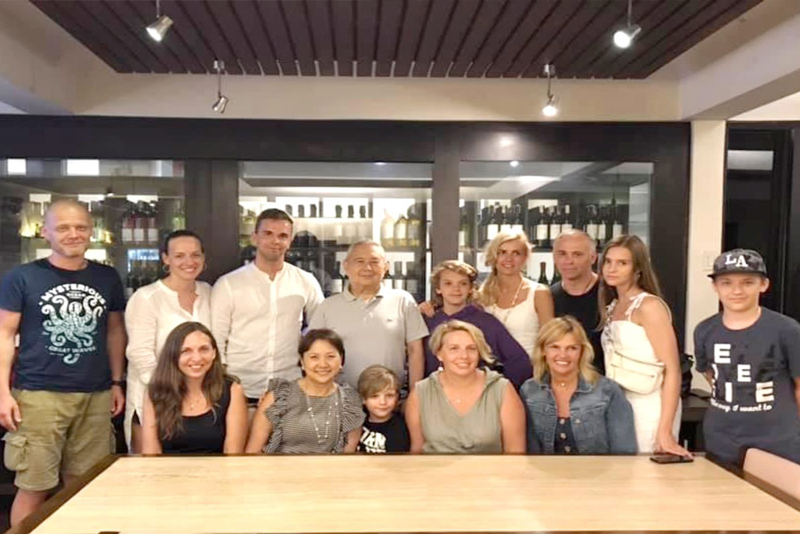Black eye

One of the areas where public-private partnerships or PPPs have brought unprecedented success and significant change in the lives of Filipinos is in the water sector.
The Metropolitan Waterworks and Sewerage System (MWSS) has been heralding the success of its partnerships with its three concessionaires, namely Maynilad, Manila Water and San Miguel Bulk Water, in ensuring water security and better wastewater management.
Maynilad of the Metro Pacific Group is the water and wastewater services provider for the 17 cities and municipalities that comprise the West Zone of the Metropolitan Manila area while Manila Water of the Ayala Group holds the exclusive right for the East Zone.
Meanwhile, the Bulacan bulk water supply project of Luzon Clean Water Development Corp., a consortium of San Miguel Corp. and Korea Water Resources Corp., provides treated bulk water to the 24 water service providers in Bulacan or to six municipalities and two cities in the province.
Since the start of President Duterte’s term, more local water districts have entered into joint venture agreements (JVA) with private entities under the PPP scheme, even remote areas of the country to enjoy a steady stream of clean water.
One company that has entered into the most JVAs with these local water districts is PrimeWater Infrastructure Corp. which has entered or is proposing to enter into service concession agreements and JVAs with local water districts for the financing, development, operation and maintenance of water supply systems and septage facilities.
According to reports, PrimeWater has already virtually taken over 30 water districts on top of over 100 pending proposals for JVAs.
The Philippine Competition Commission (PCC) has said that it is conducting a more detailed probe into the proposed joint venture between PrimeWater and Dasmariñas Local Water District to see how this would affect competition.
Then there are reports that PrimeWater is colluding with water districts or their LGUs to force approval of their unsolicited proposals. The Metro Iloilo Water District has considered legal action against its own Sangguniang Panlungsod after the latter approved PrimeWater’s proposal, claiming that the local legislative body was not authorized to do so.
Then of course there are the insinuations that as a member of the Villar Group of Companies, PrimeWater saw a surge in its acquired water districts since the Villars assumed key positions in government.
Let us hope that all these reports are baseless. This is not the time to deal PPPs a black eye, when the Duterte government is relying on these partnerships to fuel his Build Build Build program which is meant to accelerate infrastructure development.
Long-term benefit
The Tariff Commission (TC) is expected to release its ruling anytime soon on a matter that would have a huge impact on the government’s infrastructure program.
After conducting public hearings on a petition filed by the Cement Manufacturers Association of the Philippines (CEMAP), the TC, chaired by Marilou Mendoza, will now decide whether or not to make permanent the provisional safeguard duty imposed on imported cement. The commission can even increase the four percent provisional tariff which amounts to P210 per metric ton or P8.40 per bag of cement.
Mendoza explained that their task was to determine whether or not the surge in imported cement caused serious injury to cement manufacturers.
Last February, the Department of Trade and Industry imposed the provisional safeguard duties after clearly establishing that there was a surge in imports of cement and that this has caused injury to the local industry. Trade Secretary Ramon Lopez said that according to their investigations, imported cement surged to more than three million metric tons in 2017 from just 3,558 tons in 2013 while the share of imports by non-manufacturers or “pure” traders went up 15 percent from only 0.02 percent during the same four-year period.
Lopez also noted that the local cement industry experienced a sharp decline in income of 49 percent in 2017.
DTI has stressed that over importation of cement affects the country’s interest since the domestic cement industry plays a vital part in the government’s Build Build Build program. It pointed out that the competitiveness and viability of cement manufacturers will serve as a strong foundation for a highly industrialized Philippines, adding that relying solely on imports and being at the mercy of global supply and demand condition is “risky and irresponsible.”
Under Republic Act 8800 or the Safeguard Measures Act, a provisional duty is imposed under critical circumstances where a delay would cause damage which would be difficult to repair, and pursuant to a preliminary determination that increased imports are a substantial cause of, or threaten to substantially cause, serious injury to the domestic industry. The tariff will be in the form of a cash bond that will be deposited with a government bank while the TC undertakes formal investigations.
In the first quarter of 2019, the volume of cement imports rose 64 percent to 1.74 million tons from 1.06 million tons in the same period last year, prompting CEMAP to call for a higher permanent safeguard.
CEMAP officials have expressed hope the TC will uphold the country’s interests in its ruling on the safeguard measure. CEMAP executive director Cirilo Pestano II said that the sudden, sharp and significant increase in cement importation starting in 2016 will lead to serious repercussions that will be detrimental to the Philippine economy.
Not so hidden agenda

GROUP VISITS CEBU: The Latvian Travel group led by Zane Sverna (seated left) were welcomed at the Wine Museum and hosted by Honorary Consul General Robert Lim Joseph Jr. (center standing) and wife Ida Manalo Joseph (second from left seated). The group spent two weeks visiting Cebu tourist destinations like historical and cultural sites, resorts, and restaurants. Shown in photo are (from left seated) Sverna, Mrs.Joseph, Rudolfs Sverns, Evits Mzule, Elita Pavulane. Standing are (from left) Armands Sverns, Ulla Pavulane, Janis Pavulans, Mr. Joseph, Davis Pavulans, Ieva Mezule, Andris iPavulans, Elsa Pavulane and Karlis Sverns.
For comments, e-mail at [email protected]
- Latest
- Trending



























